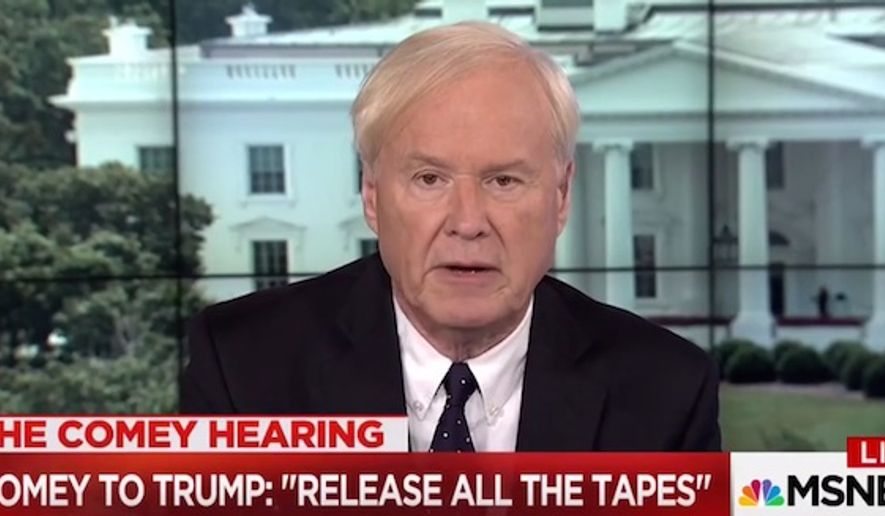MSNBC’s Chris Matthews says the “big story” to come from former FBI Director James Comey’s testimony on Capitol Hill is the unraveling of Trump-Russia collusion theories.
The host of “Hardball” told his peers on Thursday that President Donald Trump can rest easy on one issue favored by his critics — the idea that his presidential campaign worked with Russian state actors to influence the 2016 U.S. presidential election. He said such theories “came apart,” even if other criticisms of the president remain.
“The big story to me has always been … the assumption of the critics of the president — of his pursuers, you might say — is that somewhere along the line in the last year the president had something to do with colluding with the Russians, something to [give] a helping hand, encouraging them, feeding their desire to affect the decision in some way,” Mr. Matthews said, the Daily Caller reported. “And yet, what came apart this morning was that theory in two regards.”
The pundit said Mr. Comey’s testimony proves Mr. Trump had no qualms with “satellite” associates being targeted by the FBI, and that former national security adviser Michael Flynn “wasn’t central” to any of the agency’s investigations.
“The president said that according to the written testimony of Mr. Comey, go ahead and get anybody satellite to my operation and nail them,” Mr. Matthews said. “That would mean Manafort, Carter Page, someone else like that. […] Comey said that basically Flynn wasn’t central to the Russian investigation, that he was touching on it. […] They could flip him because they had him caught on something he dishonestly answered, but he wasn’t central it seemed to the Russian thing. […] And if that’s not the case, where’s the there there?”
Mr. Comey also told the Senate intelligence committee that he considered some of his private conversations with the president to be troublesome, but refused to say the FBI’s investigations were obstructed.
“I don’t think it’s for me to say whether the conversation I had with the president was an effort to obstruct. I took it as a very disturbing thing, very concerning,” Mr. Comey said.
• Douglas Ernst can be reached at dernst@washingtontimes.com.




Please read our comment policy before commenting.